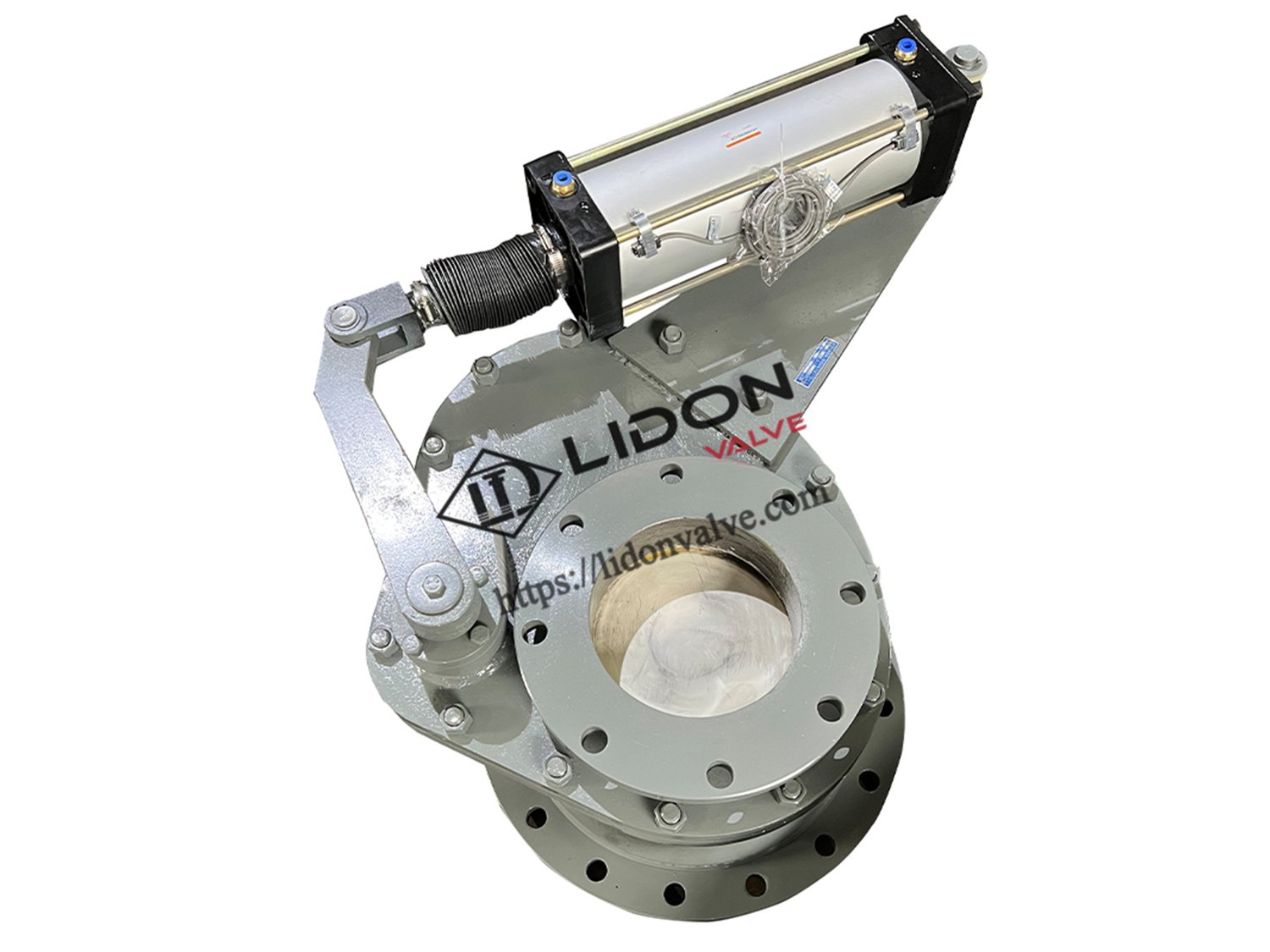Introduction
Pneumatic Rotary Gate Valves are an essential component in various industries, including oil and gas, chemical, and power generation. These valves play a crucial role in controlling the flow of fluids, gases, and powders through pipes and ducts. In this article, we will explore the different aspects of pneumatic rotary gate valves, including their design, working principle, advantages, and applications.
Design and Construction of Pneumatic Rotary Gate Valve
The design of pneumatic rotary gate valves involves precision engineering to ensure optimal performance and reliability. These valves typically consist of a housing, gate, actuator, and sealing mechanism. The housing is made from durable materials such as cast iron, stainless steel, or carbon steel to withstand high pressures and temperatures.
The gate, which controls the flow, is usually made from stainless steel or other corrosion-resistant materials. The actuator can be pneumatic, hydraulic, or electric, depending on the application requirements. It provides the necessary force to open or close the gate. The sealing mechanism, such as packing or a metal-to-metal seal, ensures a tight closure and prevents leakage.
Working Principle of Pneumatic Rotary Gate Valve
The working principle of a pneumatic rotary gate valve is relatively simple. When the actuator receives a signal, it generates the required force to rotate the gate. As the gate rotates, it either opens or closes the valve, allowing or blocking the flow of fluid or gas. The actuator can be controlled manually or automated using a control system, enhancing the efficiency and accuracy of the valve's operation.
Advantages of Pneumatic Rotary Gate Valve
1. Precise Flow Control: Pneumatic rotary gate valves offer precise flow control, allowing for accurate regulation of fluid or gas flow rates. This level of control is crucial in industries where precise measurements are essential, such as chemical processing or batch manufacturing.
2. Quick Response Time: These valves have fast response times, making them ideal for applications that require rapid opening or closing of the valve. The pneumatic actuator ensures quick and reliable operation, minimizing downtime and improving overall process efficiency.
3. High Pressure and Temperature Resistance: Pneumatic rotary gate valves can withstand high pressures and temperatures, making them suitable for demanding industrial environments. Their robust construction and materials ensure reliable performance even under extreme operating conditions.
4. Minimal Maintenance: Due to their sturdy design and reliable operation, pneumatic rotary gate valves require minimal maintenance. This reduces downtime and increases the overall efficiency of the system. Regular inspection and lubrication of the valve components are usually sufficient to keep them in optimal condition.
5. Versatility: Pneumatic rotary gate valves are available in a wide range of sizes and materials, allowing them to be used in various applications. They can handle different types of fluids, gases, and powders, making them highly versatile in industries such as oil and gas, chemical, pharmaceutical, and food processing.
Applications of Pneumatic Rotary Gate Valve
Pneumatic rotary gate valves find applications in a wide range of industries. Some of the common applications include:
1. Oil and Gas: These valves are used in oil and gas pipelines for controlling the flow of crude oil, natural gas, and refined products. They are crucial in ensuring the safe and efficient transportation of these valuable resources.
2. Chemical Processing: Pneumatic rotary gate valves are extensively used in chemical plants for regulating the flow of various chemicals during the manufacturing process. Their precise control and resistance to corrosive substances make them ideal for this application.
3. Power Generation: In power plants, these valves play a vital role in controlling the flow of steam, water, and other fluids in boilers, turbines, and cooling systems. Their ability to handle high temperatures and pressures makes them suitable for power generation applications.
4. Food and Beverage: Pneumatic rotary gate valves are used in the food and beverage industry for controlling the flow of liquids, such as juices, milk, and syrup. They ensure hygienic and accurate flow control, essential for maintaining product quality and safety.
5. Pharmaceutical: These valves are employed in pharmaceutical manufacturing processes for regulating the flow of liquids, gases, and powders. Their precise control and ease of cleaning make them suitable for maintaining strict quality standards in pharmaceutical production.
Conclusion
Pneumatic rotary gate valves are a vital component in numerous industries, offering precise flow control, fast response times, and high-pressure and temperature resistance. Their versatility and minimal maintenance requirements make them an excellent choice for a wide range of applications. Whether in oil and gas, chemical processing, power generation, or other industries, pneumatic rotary gate valves are essential for efficient and reliable fluid and gas flow control.

